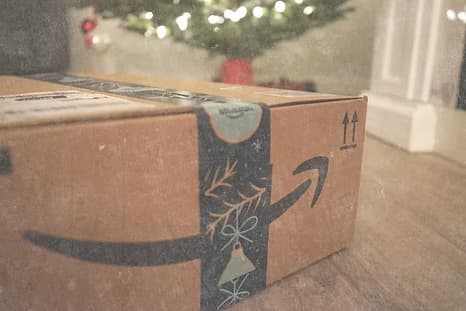
Alternatives to Amazon
With growing environmental awareness and a spotlight on ethical consumerism, it’s time we take a closer look at the origins of our so-called "eco" purchases. Are we really supporting sustainability—or just convenience?
Recently, I needed to replace my single-use cotton pads with a reusable alternative. Almost automatically, I opened Amazon, searched for “eco makeup pads,” and placed a one-click order. It wasn’t until afterward that it struck me: I could’ve supported a small, UK-based eco business instead.
Why It Matters
There’s no denying that Amazon is fast, affordable, and convenient. It’s often the go-to for many of us. But while it offers a huge selection of eco-friendly products, the carbon footprint of the platform itself is enormous.
Take 2018, for example: Amazon emitted 44.4 million tons of CO₂ equivalents—that’s roughly the same as the entire country of Norway.
And during the COVID-19 pandemic, Amazon’s growth surged. From 2019 to 2020, the company doubled its net profit to $5.2 billion, with a huge uptick in deliveries, returns, and packaging waste. While we don’t yet have full environmental data for that period, it’s safe to assume emissions soared even higher.
Although Amazon has committed to becoming net-zero carbon by 2040, through strategies like increasing electric vehicle usage, can this really balance out the emissions from shipping millions of products globally every day?
What is Sustainable Consumption?
Sustainable consumption means using resources wisely and reducing waste, without necessarily having to live perfectly. It’s not about a single purchase, but the overall patterns we create as consumers. Supporting independent eco businesses is one way to shift those patterns for the better.
The Trade-Off: Convenience vs. Impact
Yes, shopping on Amazon is easier—and often cheaper. But if you’re in a position to look beyond big platforms, you can:
- Support local businesses with ethical practices
- Help shift market power toward eco-conscious companies
- Reduce carbon emissions linked to long-distance shipping
- Promote more resilient, localized supply chains
Where Else Can I Shop?
Here are some brilliant UK-based eco businesses offering sustainable alternatives to Amazon:
A go-to online store for plastic-free living. They offer everything from home essentials to beauty products—all with sustainability in mind.
Affordable, plastic-free, everyday alternatives with a loyalty rewards system for repeat customers.
Focused on affordability and minimalist design, this shop sources reusable, durable items from small ethical brands.
Partnering with over 250 UK-based independent brands, Wearth sells zero-waste, vegan, and cruelty-free essentials.
A treasure trove of reusable alternatives for household products to help cut out waste and simplify sustainable living.
Other Specialist Eco Shops
Looking for something more niche? Try:
- Rapanui or Lucy & Yak – sustainable fashion
- World of Books – second-hand books
- The Thoughtful Pup – eco-conscious dog treats
Plus, many towns and cities now have zero-waste shops where you can refill, reuse, and support your local economy. A quick online search can lead you to a nearby business offering click-and-collect or carbon-light delivery.
Every Click Counts
We all have habits that are hard to break. But if we want to build a greener, fairer economy, it starts with small choices. Next time you shop online, pause before you click “Buy Now.” Look for alternatives that align with your values—and might even be just down the road.
